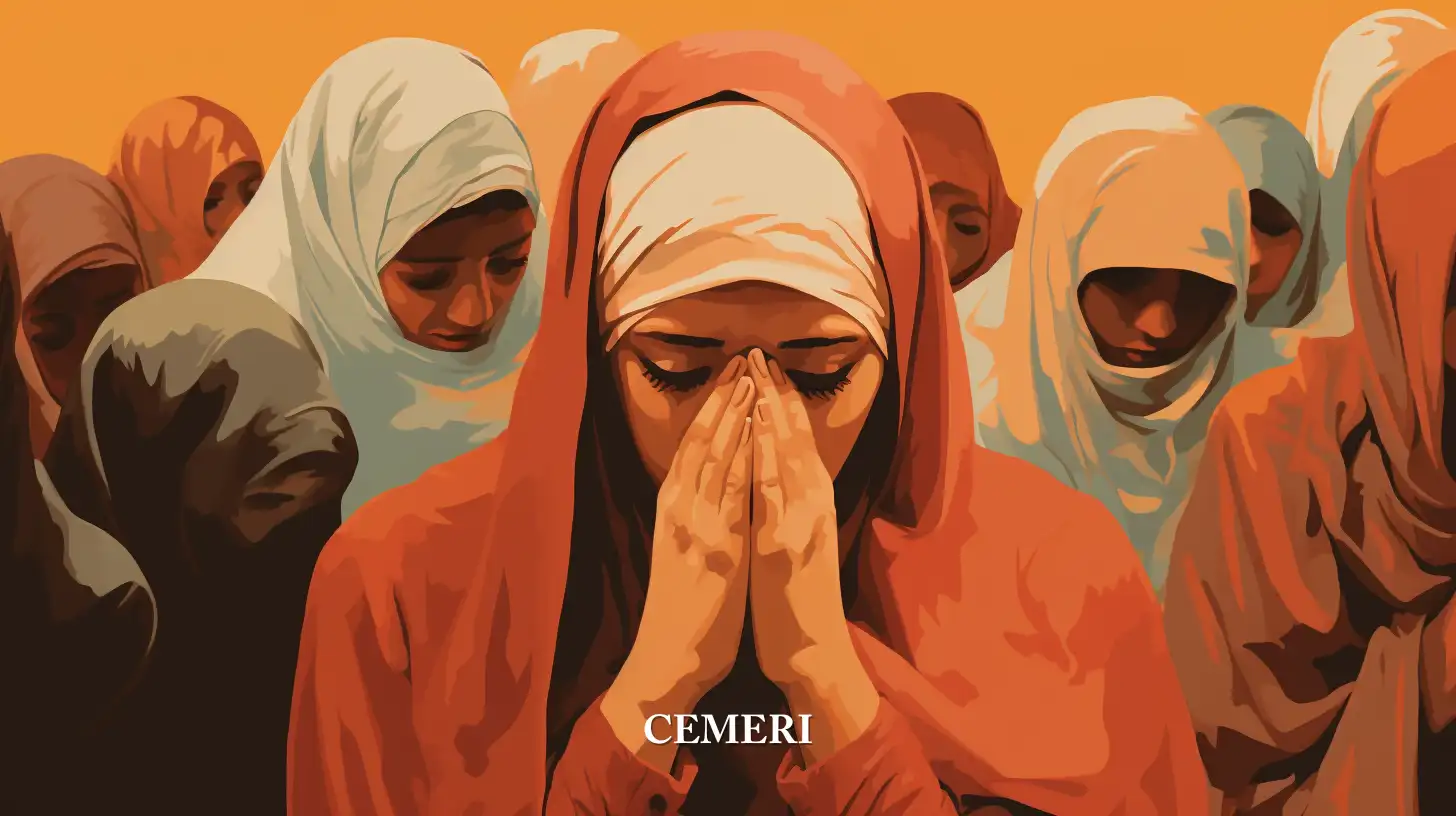Encyclopedia
Michelle Flores Acosta
What is Islamophobia?
- And why it should not be seen as an isolated phenomenon.

The term Islamophobia refers to the rejection of Islamic culture and the set of xenophobic attitudes towards Muslims. The Royal Spanish Academy defines phobia as a “distressing and uncontrollable fear of certain acts, ideas, objects or situations, which is known to be absurd and approaches obsession”)(1). Starting from the use of the word phobia, one could fall into the error of exempting those who commit violent acts towards Muslims from all guilt.
In this order of ideas, the Royal Spanish Academy defines Islamophobia as the "aversion towards Islam, Muslims or what is Muslim" (2). In this sense, the Council of Europe and the Committee on the Elimination of all Forms of Racial Discrimination of the United Nations define it as "a form of racism and xenophobia manifested through hostility, exclusion, rejection and hatred against Muslims". , especially when the Muslim population is a minority, something that occurs with greater impact in Western countries” (3).
On the other hand, Fred Halliday, decided that the term "anti-Muslimism" was a much more appropriate term to refer to the phenomenon, since Western society does not fear Islam as a faith, but fears the peoples that characteristically have it as a religion and do not fear the Koran, nor Muslim customs. (4)
Islamophobia is not a new phenomenon, it dates back to Islam's first contacts with other religions and cultures, among its main causes are terrorism, armed conflicts in the East, the discourse of the media related to Islamic culture, the perception that globalization threatens our own culture, the different conception of fundamental rights, seeing Islam as a monolithic block and incapable of change and for being perceived as something separate from other religions with which it has no identity or values in common .
File- The Newspaper
The events of September 11, 2001 in United States, and later, the attacks of 2011 in Madrid, Paris in 2015 and the United Kingdom in 2017 contributed to the increase of racism against Arabs through an Islamophobic hysteria in the world, which has had a detrimental impact on the rights and security of Muslim citizens in countries outside the Islamic world. In 2008 the UN Human Rights Council issued a resolution expressing its deep concern over attempts to identify Islam with terrorism, violence and human rights violations, it also expressed concern about the use of the media to incite violence, xenophobia and discrimination against Islam. Subsequently, this public body issued a report linked to Islamophobia, anti-Semitism and Christianphobia, which stated that in the manifestations and expressions of Islamophobia two central issues come into play: the violation of religious freedom and incitement to racial and religious hatred.
The refugee crisis of 2015 evidenced the different sensitivities of the European community regarding immigration, the populist discourse has increased hatred and fear towards the Muslim community, since the Muslim is raised as a destabilizing factor of European identity and values, anti-immigrant messages are at the core of almost all contemporary right-wing parties as a means of winning votes in elections.
An article published by the Barcelona Center for International Affairs titled Populism and Immigration in the European Union determined that outbreaks of populism contribute to the secularization and stigmatization of Muslims, at the same time affirmed that in the West, social sectors belonging to the national majorities of each territory have expressed their experience of discomfort in socio-economic and insecurity issues through Islamophobic discourse (7).
File-El País
The establishment of national policies and laws that lead to the stigmatization of Muslim minorities has contributed to the spread of Islamophobia, legitimized by an identity vision that excludes Islam.
In 2009, through a consultation, the Swiss voted in favor of prohibiting in their Constitution the erection of minarets in mosques, one of the causes of this prohibition is the belief that they represent a symbol of "political domination of Islam in Swiss lands". ”. Meanwhile, aversion against Islamic culture is promoted through political groups such as Golden Dawn in Greece, Vox in Spain, PVV in the Netherlands, another example of this is Pegida which It has had a great mobilization against the Islamization of the West in Germany, however, a campaign against this Islamophobic movement has also been carried out in the country.
In October 2020, President Emmanuel Macron promoted a bill within the framework of the fight against Islamist separatism, according to critics, this law stigmatizes Muslims and limits their freedoms, the bill was born as response to jihadist intimidation in France, which started with the attack against the newsroom of the weekly Charlie Hebdo in January 2015 and as its last milestone the murder of Professor Samuel Paty in a suburb of Paris.
In February 2021, an alliance of 36 NGOs representing 13 countries presented a petition to the UN Human Rights Council denouncing the systematic actions of Islamophobia in France through the identification and documentation of facts linked to their presence in the country. , the statement urges France to enact or repeal laws where necessary to prohibit discrimination.
On the other hand, gender Islamophobia has given rise to a long list of attacks on Muslim women for their association with Islam and, consequently, machismo and submission, this discrimination has limited equal access to After the 9/11 attacks and other events linked to Islamic extremist groups, Muslim women who wear Islamic clothing are the most vulnerable targets of harassment and hate crimes in Western societies. Since 2011 in France the use of the full veil in any public space has been prohibited, recently in Switzerland, the prohibition of the use of the Burqa and niqabs was approved, the proposal was rejected by the federal government and a large part of the Swiss entities, the The result of this new norm can be translated into a greater rejection of Muslims in the country.
The Voice of Galicia Archive
Currently, the debate around Islamophobia continues open due to its boom in Western society, fueled by various reasons, especially by terrorist acts and the presence of people who identify themselves as Muslims who carry out violent actions. that have nothing to do with Islamic culture and make the religion poorly perceived. There is a long discussion about the definition and implications of the term Islamophobia and the characterization as to what it refers to, whether it is racism, religious discrimination, cultural racism or none of them, or whether, on the contrary, it is it deals with a completely new phenomenon, with its own characteristics and alien to any movement, ideology or phenomenon prior to it.
Islamophobia should not be seen as an isolated phenomenon, other phenomena of intolerance of this same style have existed throughout history, such as anti-Semitism and anti-Judaism. Some of the authors who have studied Islamophobia agree that it is not only hostility against Islam as a religion and culture, but also discrimination against people perceived as Muslims. Finally, Islamophobia represents a phenomenon whose rise cannot be ignored or underestimated, because its rise is evident and can manifest itself both daily and institutionally and should not take root in our society, political leaders have the responsibility of sending clear messages of respect for all communities, which give rise to initiatives that fight against prejudice, discontent and marginalization.
Sources
[2] https://dle.rae.es/islamofobia
[3] PROXI. (2015). Desmontando la islamofobia. Recuperado 15 septiembre 2015, desde www.observatorioproxi.org/index.php/informate/articulossemanales/item/189-desmontando-la-islamofobia
[4] Fred Halliday, «Islamophobia reconsidered», Ethnic and Racial Studies, vol. 22, n.º 5, 1999, pp. 892-902
[5] La Resolución 7/19 del Consejo de Derechos Humanos «La lucha contra la difamación de las religiones» A/HRC/7/L.11 (27 de marzo del 2008) disponible en: https://ap.ohchr.org/documents/S/HRC/resolutions/A_HRC_RES_7_19.pdf
[6] Informe de la Asamblea General «Racismo, discriminación racial, xenofobia y formas conexas de intolerancia: seguimiento y aplicación del programa de acción de Durban» A/HRC/9/12 (2 de septiembre del 2008). Disponible en: https://www.refworld.org/cgi-bin/texis/vtx/rwmain/opendocpdf.pdf?reldoc=y&docid=48e61c102
[7] Kaya, A (2017) Populism and inmigration and the European Union. CIDOB P. 52-79. Recuperado de https://www.cidob.org/
[8] Gonzalez, Paula. (2018). La islamofobia definición y causas. [Trabajo de Fin de Grado, Universidad Pontificia Comillas] Repositorio Institucional- Universidad Pontificia Comillas.
[9] Casa Árabe e Instituto Internacional de Estudios Árabes y del Mundo Musulmán. (2017) Musulmanes en Europa, entre el Islam y la Islamofobia. N° 1/2017. Recuperado de https://www.ararteko.eus/RecursosWeb/DOCUMENTOS/1/0_814_1.pdf
[10] Observatorio contra la Islamofobia en los Medios. (2018) La realidad incontestable: la islamofobia en los medios. Recuperado de http://www.observatorioislamofobia.org/category/informes-anuales/informe-2017-una-realidad-incontestable-islamofobia-en-los-medios/
[11] Carriso, R. (2009). Los suizos votan a favor de prohibir los minaretes en las mezquitas. El País. Recuperado de https://elpais.com/diario/2009/11/30/internacional/1259535607_850215.html
[12] Bassest, M (2020) Francia presenta Ley que perseguirá al islamismo radical. El País. Recuperado de https://elpais.com/internacional/2020-12-09/francia-presenta-la-ley-que-perseguira-el-islamismo-radical.html
[13] Burak, D. (2021) .Grupo de 36 ONG presenta una petición a la ONU para ponerle fin a la Islamofobia en Francia. Agencia Anadolu. Recuperado de https://www.aa.com.tr/es/mundo/grupo-de-36-ong-presenta-una-petici%C3%B3n-a-la-onu-para-ponerle-fin-a-la-islamofobia-en-francia/2114385
[1] https://dle.rae.es/fobia

